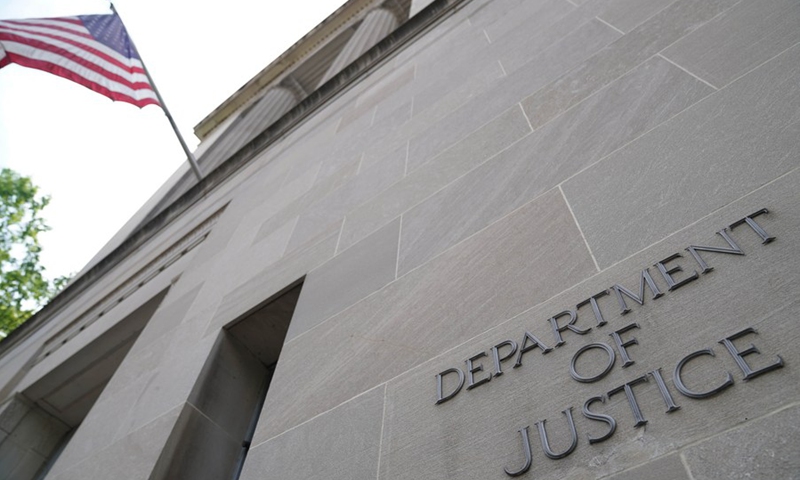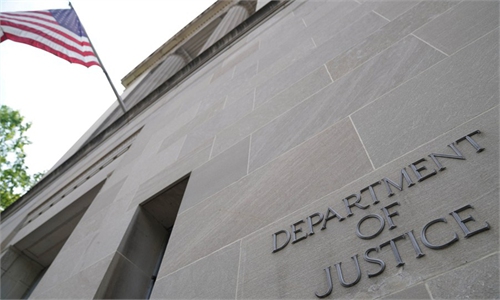
Photo taken on May 29, 2019 shows the US Department of Justice headquarters building in Washington, D.C., the United States. (Xinhua/Liu Jie)
The US Department of Justice (DOJ) is shutting down a program known as the "China Initiative," said officials on Wednesday. Overall, the program that focused on "countering Chinese espionage" was a failure, especially in terms of "catching spies." But for the US Asian community, the anti-Asian, particularly anti-Chinese, sentiment it caused has left some open wounds hard to heal. And as McCarthyism has returned to US society and taken root there, the witch hunt against China and people related to the country is unlikely to stop anytime soon.The notorious program was launched during the Trump administration in November 2018. It mainly targeted alleged "spies" that are either Chinese Americans, US residents of Chinese origin, or simply have a connection with China. Since the beginning, the "China Initiative" drew strong opposition from Asian Americans, who argue that it threatened their personal safety and harmed their community. Some also doubted it would prevent scholars and experts of Chinese origin from pursuing their careers in the US.
According to Zhang Tengjun, an associate research fellow at the China Institute of International Studies, there were two reasons behind the Biden administration's decision.
On one hand, this was to answer the long-standing call at home to scrap the racist program and gain more support, particularly from the Asian American community.
On the other, according to Zhang, the Biden administration feared that if the project continued, it would undermine normal academic exchanges between China and the US, as well as academic research in the US. This will be detrimental to the implementation of its policies in this area. "In the long run, it will also hinder Washington from maintaining its ability to innovate, as well as its global leadership in academia," Zhang added.
The core of the "China Initiative," a policy legacy from the Trump era, is anti-China. And the program is only a small part of anti-China actions initiated by the Trump administration. Zhang believes that the core assumption of the China Initiative is that anyone closely related to China might be working for China's intelligence agencies. This reminds us how McCarthyism used to doubt anyone related to communism in the early 1950s. It can be said the "China Initiative" is a manifestation of the growing neo-McCarthyism in the US.
One of the major pernicious consequences of the program is a drastic growth of Asian hate, which runs counter to the idea of equality regardless of race and ethnicity that the US, especially the Democratic Party, has been trying to promote. This is why Washington is ending the "China Initiative," not because it wants to change its ways of handling China.
Therefore, it is unlikely the US will change its course of pressuring and containing China. "In an atmosphere of rising anti-China sentiment, I'm afraid any interaction with China will still come under closer scrutiny," Zhang said.
The Biden administration's decision was hailed by many Asian Americans. But it might still be too early to celebrate, since many wonder if the end of the program is merely a name change. After all, while announcing the shutdown of the "China Initiative," the DOJ also claims it is going to "continue to aggressively combat threats posed by the PRC [People's Republic of China] government."
The decision could be a smokescreen, and Washington might continue to hunt down "Chinese spies" in the name of protecting national security, only in a more discreet way. Or the witch hunt might take other forms. Either way, we need to remain vigilant.
Zhang believes that the end of the "China Initiative" can pacify Asian Americans and even stop Asian hate in the US to a certain extent. However, the damage is done. Many still fear they might be harassed and even arrested as some were during the Trump administration. The psychological damage and dread caused by the "China Initiative" are unlikely to be repaired in the short term, at least not by a simple action as ending one program.


